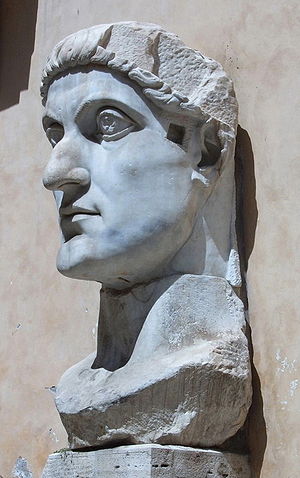Reference to Miyuki's Question on
Facebook:
Ah, this can get really deep here. You are asking questions that can be answered easily and naively, or that can be expounded into truths so profound as to change your very being.
1) When you hear "church" what do you think of?
"Church" in the sense that you have put it in quotation marks makes me think you no longer assume it is a "place or building" - but you assume most people do. I read about half of those who answered thought as much as well. Church is "the Body of Christ." The eternal, catholic (ie, universal) and incorruptible community of believers throughout the history of God's people.
That is why Paul refers to us as members of the body. As in a body part, each with his/her own ability and duty and personality, different from others, but of one heart, one head. Christ.
It is also described as the "Bride of Christ." One of the most profound and visual images of the Church. An image that should denote that if our "marriage" to Christ is full, we should see products of our love, "children." More family members.
2) What is your definition of a Christian?
See above. First used by Paul to describe the community of believers. But that is a difficult question. Defining that is presuming to judging others - a fine difference from discerning. That is why it isn't really so tightly laid down in the Bible other than saying "One who professes Christ Jesus with their lips."
But lets say it like Christ Himself said it; "For whoever does the will of My Father who is in heaven, he is My brother and sister and mother." (Matt 12:50) and again, "I am the vine, you are the branches; he who abides in Me and I in him, he bears much fruit, for apart from Me you can do nothing." (John 15:5) that is a Christian. Abiding in Christ - having a living faith in the living God through Jesus Christ.
3) What do you think the role of a Christian is?
Are you asking what are our jobs? Dunno. We each have our own. If you mean in the most basic sense, then we are told right out, "Go, and make disciples of all men!" If God were speak straight out of Heaven, I doubt half the people in the world who are Christians now would even listen. And if He came in undisguised, then no one could even comprehend, but fall on our faces and all of reality would melt away (thats basically what the end of time will be like according to Revelation) but if He comes as man, as someone you can relate to and be with and count on, than He must be limited to a space just like us. If you didn't have the choice to believe, then you wouldn't have the choice to love either. God values your choices. So, he leaves it us, those who believe to spread the love. For it is a relationship He is seeking with you. How else to have a relationship if not to relate to others. Our duty and desire is therefore to "love the Lord, God with all your heart, mind and soul and to love our neighbor as ourself."
4) What is love?
You should read CS Lewis' "Four Loves" - very good reading. The short answer? Love is giving another what you have that they need. "God so
loved the world that He
gave His only begotten Son, that whosoever believes in Him should not perish, but have eternal life." (John 3:16 emphasis added)
Love is not to be confused with God. God is Love, but love is not God. Just because someone does something in love does not make it "good." Love with out justice, mercy, faithfulness, the laws of nature or humility is a demon that we sometimes call pride, lust or greed. Love of self, love of money, homosexuality, are all horrors that come from not abiding in the fullness of Love.
Affection, Eros, Friendship, Charity. These are the four great loves.
5) What is good?
You like difficult questions don't you? It would be easier to ask what is evil.
Good is the fullness of the Universe, the fullness of God, for only God is good, right?
Evil is simply the lack of good, as darkness is simply the lack of light. Good IS while evil IS NOT. Taken in these terms, everything that God made was pronounced "good" was it not? It is either by taking something apart from the rest or a piece of something broken from the fullness of its purpose that makes it "not-good."
For instance, you asked what love is? Love is good. Marriage is love's great reward. A promise before God, to another person. Friendship, affection, charity and eros, shared with the faithfulness of vows.
Divorce breaks the vows, steals the friendship and disrespects the parties involved.
Doing good can be many things. Sin on the other hand falls in two contexts. Sins of omission, and sins of commission. It can be defined fairly simply:
Taking a thing and twisting it, commission - a truth twisted, a promise broken, a good thing done at the wrong time, or in the wrong way. eg. Eating too much (gluttony), having sex outside of marriage (fornication), taking something that you didn't work for (theft).
OR in not doing it at all, omission - not giving (greed), not caring (pride), not getting out of bed laziness)
Oh man, thats not a great answer. That would require a book of several volumes. (About 66 volumes in fact...)
 While both Dave and I love to promote other Christian endeavors, we love to promote Christ above all.
While both Dave and I love to promote other Christian endeavors, we love to promote Christ above all.
![Reblog this post [with Zemanta]](http://img.zemanta.com/reblog_e.png?x-id=f1a8c393-d09d-4ffa-baf8-d06ec2aab5b0)
